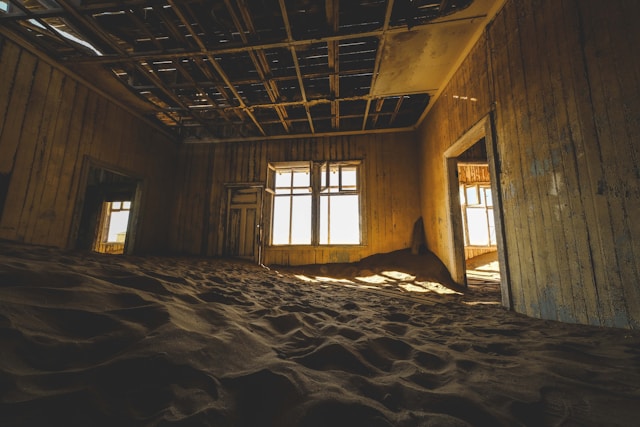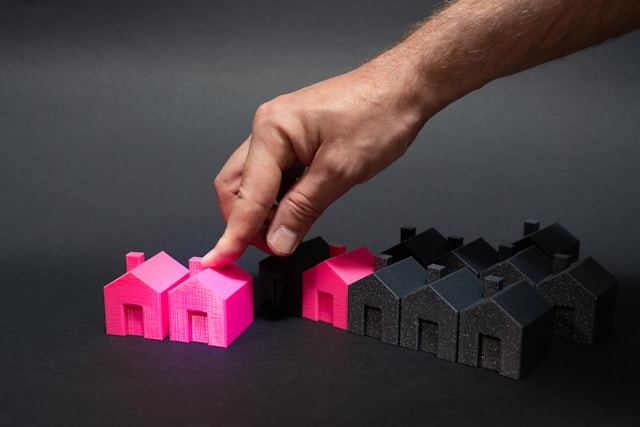Investing in Canadian rental property can be a smart path to long-term financial security. But are you squeezing every last drop of potential profit from your investment? Many investors focus on rent collection, tenant wrangling, and routine maintenance, perhaps missing a key component: depreciation.
Think of depreciation as your silent partner, subtly boosting your bottom line. Understanding how depreciation impacts your cash flow, taxes, and long-term gains is more than indispensable. It’s about actively setting yourself up for long-term financial success in Canada’s competitive real estate scene.
Consider this guide your personal roadmap. We’ll navigate the ins and outs of depreciation, arming you with the smarts you need to make informed decisions and supercharge your investment strategy. Let’s jump in and see how to make depreciation work for you.
What is Rental Property Depreciation?
Depreciation, in real estate terms, boils down to the simple fact that properties lose value over time. This happens due to wear and tear, as well as the obsolescence of things, or a decline in the value of your property’s location.
Think about it: your roof won’t last forever, carpets fade, and even the trendiest kitchen will look old eventually.
From a tax planning perspective, depreciation is a big deal. It gives you a way to deduct a portion of your property’s purchase price every year. Even better? You’re deducting expenses you don’t shell out every year. Understanding this deduction can seriously lighten your tax load, boost your cash flow, and give your financial picture a healthy glow-up.
Recall that in order to maximize these advantages without going against tax laws, bookkeeping and accounting are necessary. It can be helpful to consult with professionals for questions around accounting and bookkeeping to make sure you’re doing things right. A skilled accountant can help nail down depreciation, pick the best method, and keep your records squeaky clean according to the law.
How Depreciation Works for Canadian Rental Properties
Capital Cost Allowance (CCA) is the term used in Canada to describe depreciation for tax reasons. The Canada Revenue Agency (CRA) allows landlords to deduct a portion of a property’s value annually, as long as the deduction follows specific rules.
To claim depreciation on your Canadian rental property, you’ll need to use the correct form depending on your business type:
- T2125 – Statement of Business or Professional Activities
- T2042 – Statement of Farming Activities
- T2121 – Statement of Fishing Activities
Properties are grouped into different CCA classes. For instance:
- Class 1: Depreciated at a rate of 4% annually, this category comprises the majority of structures purchased after 1987. Usually covers most buildings, like houses, apartments, and commercial spaces. You can typically depreciate these at 4% per year, using what’s called the declining balance method. For example: If you snagged a property in Toronto for $500,000 (building portion only), you could deduct $20,000 (4% of $500,000) for CCA in year one.
- Class 3: This often applies to buildings that popped up before 1988 and meet specific requirements. These buildings usually get a 5% CCA rate. For example: You also own a commercial space in Edmonton, built back in ’87. Let’s say the building cost was $800,000; you might be able to deduct $40,000 (5% of $800,000) in year one.
Other Common CCA Classes for Real Estate Investors
- Class 6 (10%) – Buildings made of frame, stucco, or log, often used in farming or fishing.
- Class 8 (20%) – Furniture, appliances, and tools.
- Class 10 (30%): Automobiles and certain pieces of machinery.
- Class 10.1 (30%): Passenger cars that cost more than a certain amount.
- Class 12 (100%): Kitchenware and small tools under $500.
- Class 43.1 (30%) & 43.2 (50%): Clean energy and renewable equipment.
- Class 54 & 55 (30% and 40%): Vehicles in classes 54 and 55 (30% and 40%) have no emissions.
- Class 56 (30%): Zero-emission devices, such as electric airplanes or boats.
For more detailed information about each class, check out the Government of Canada.
Remember, land is not depreciable—only the building portion of your investment can be claimed. This means that when you buy a property, you must allocate the purchase price between land and building.
To fully understand what qualifies, consult our post on understanding rental property tax deductions in Canada and stay updated on changes.
Key Benefits of Depreciation for Investors

Depreciation can make a real difference for any landlord serious about building wealth. Here’s why:
- Lower Taxes: Right off the bat, deducting depreciation reduces your taxable income, leading to lower taxes.
- Cash Flow Boost: Since depreciation is a non-cash deduction, it lowers taxes without affecting how much money you actually earn.
- Faster Portfolio Growth: With better cash flow, you can reinvest in new rental properties sooner.
Smart landlords get that depreciation isn’t just about saving a buck. It’s about using those savings to seriously amp up your investment game. If you’re thinking about investing in rental property in Toronto, don’t underestimate depreciation.
Limitations and Important Considerations
While depreciation has benefits, you need to know the important limitations to sidestep any mistakes and remain compliant with revenue regulations.
- CCA Recapture: Here’s an important note. The CCA you have been claiming over time may backfire when you sell. This is known as recapture, and the CRA may tax the recaptured amount. Basically, they gave you a tax break before, and now they’re recouping a bit of that benefit. This amount is the lesser of the CCA you’ve claimed or the difference between the sale price and the original cost of the property. Figuring out how this recapture thing works will make a big difference in making your tax liability as low as possible when it’s time to sell.
- Over-Claiming: Be very careful. Over-claiming CCA might attract the CRA’s attention, leading to audits, penalties, and extra taxes.
- Record-Keeping is Key: Maintain accurate books, supported by strong property maintenance logs andregular inspections.
Check out a landlord’s guide for accounting and bookkeeping to get started on smart financial tracking.
How to Calculate and Claim Depreciation
Calculating depreciation might seem daunting, but it’s totally doable if you break it down.
- Determine the Capital Cost: Start by figuring the real-deal depreciable cost of the building.
- CCA Class: Match your property to the right CCA class according to the CRA.
- CCA Rate: Use the prescribed CCA rate for the specific asset type (e.g., 4% for Class 1) and be sure to fully understand how the rate is applied.
- Claim Your CCA: Multiply the building cost by the CCA rate. If you didn’t make decent rental income, you cannot claim CCA.
- Claim Your Deduction: Complete the form T776 (Statement of Real Estate Rentals) accurately and attach it to your income tax return.
- Businesses/Self-Employed: Use Form T2125.
- Rental Property: Use Form T776.
Depreciation tracking over time can get complex—especially when you have upgrades, new tenants, or are managing a multiplex. Working with a professional or using accounting software can help. Also, align with tenant screening and selection practices to protect your investment from tenant-related property damage.
Common Mistakes to Avoid
Here are some depreciation-related mistakes investors should watch out for:
- Overestimating Claimable Amounts: Don’t include the land portion.
- Ignoring Renovations: Upgrades may need to be added to the capital cost and depreciated accordingly.
- Skipping Professional Help: A small error on your return could lead to costly CRA penalties.
To avoid these issues, many landlords turn to residential property management companies that offer integrated accounting services.
It is crucial to invest time to plan and manage your depreciation correctly and strategically.
Don’t miss out! Team up with ManageYourProperty.ca today for expert help with property management and accounting! We’ll help you make the property of your dreams a reality. Go to our contact page to book your personal consultation. If you’re unsure how depreciation fits into your property management approach,contact us today.





